Introduction
If you’ve been caring for an elderly loved one for any amount of time, there’s a good chance you’re feeling tired, overwhelmed and worn out. It’s a big job taking care of someone you love, and no matter how much you do love them, the longer you find yourself as their primary carer, the more exhausted and weighed down you become.
Caring for a family member long term can have a negative impact on your relationship, because it changes the dynamic that you once had, which of course brings a difficult set of emotional and mental issues to the fore.
But for many people, taking on the care of a loved one seems like the only option.
That’s because we’ve always been told that palliative care is synonymous with end of life care, and we neither want to think about that possibility nor do we feel that our relative is ready for that type of care.
There’s undoubtedly a stigma when it comes to palliative care, but it’s not correct, and it’s preventing many families and loved ones from having the best quality of life and relationship during their golden years.
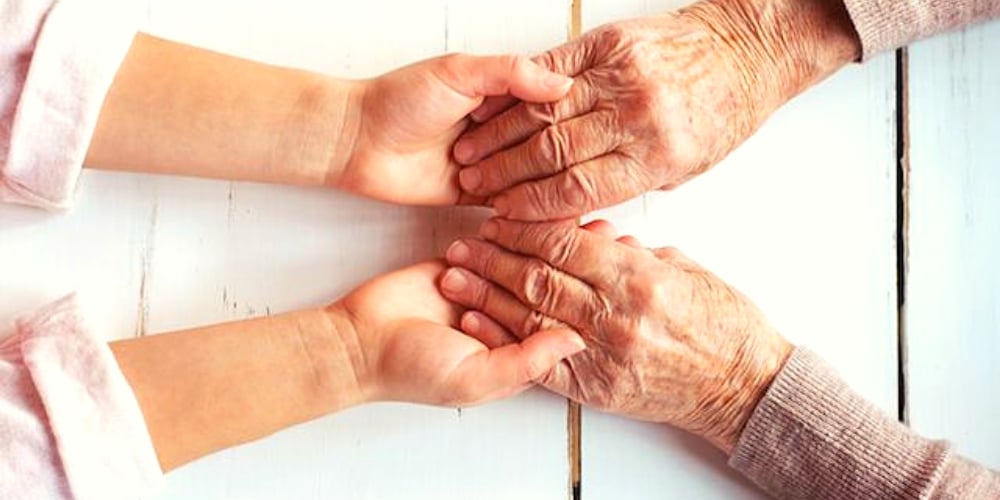
The evidence for early intervention is growing and can benefit your loved one and their families. Research indicates that initiating palliative care earlier in the illness alongside treatments and not relegating it to the terminal phase in the last days or weeks of life, helps manage any potential complications for the family.
In this guide, we look at what modern-day palliative care really is, who it is intended for, and how in-home palliative care can solve many of the problems that families with elderly, frail or ill relatives face when it comes to quality care.
What is Palliative Care?
Palliative care is care that helps people live their life as fully and as comfortable as possible when living with a life-limiting or terminal illness.

There is no formula for what should happen.
It is helpful to your loved one and their family to know that there is a primary carer with experience in palliative care who can be there to support them, whatever comes along. This, at the beginning of the advanced illness, is usually a close family member.
Your loved one will be learning to live with and express their feelings, such as sadness, anger, disbelief, fear and loneliness. As the main carers, family members should be prepared to listen and recognise their loved ones’ feelings. This gives them dignity and a feeling that you accept them as they are.
It is sad to see changes in someone you love. Valuing your relationship and treating the person who is ill as you always have, with warmth and concern will help you as well as them. Just be yourself. This is a sad time, but it can also be fulfilling.
Palliative Care Issues
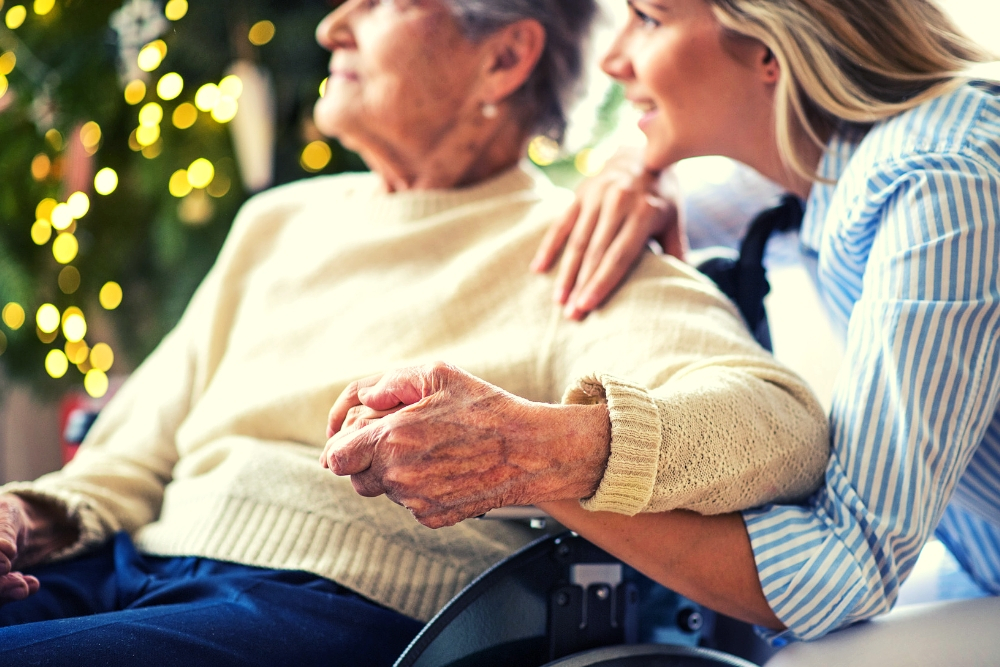
Everyone knows that dealing with serious and terminal illnesses is tough for everyone involved and that facing the prospect of losing a loved one is one of the hardest situations in which you will find yourself. Until you find yourself in this position, there’s really no way to know what specific palliative care issues you might face or what palliative care questions you'll want to ask.
While all of the families we work with are in unique circumstances, they all face similar challenges, some of which we’ve described briefly here. The challenges in palliative care we cover here are divided into two main groups, general and specific.
We hope that this information will help with your understanding of the main palliative care challenges that you and others in a similar situation might encounter, and it will help you to overcome them, making this time as comfortable as possible for your loved ones.
General Palliative Care Issues
The challenges that fall into this category are challenges that most families will face at some point in time no matter the medical condition of their loved one.
Feelings of Failure
When we talk to people who are seeking palliative care for a loved one, they often tell us that they feel as though they have failed their loved one. But the truth is, seeking this type of care is usually a sign of the great love and respect they have for their family member, partner or friend.
Having to take care of your loved one’s personal needs, including showering and toileting can be difficult for everyone involved, due to the existing relationship you have.
Far from failing these loved ones by seeking professional care, our clients are taking important steps toward redrawing the boundaries of their relationships, protecting their friend or family member and ensuring that the time they have left together is as meaningful, peaceful and enjoyable as possible.
Admitting that you need help is far from being a failure. It takes immense strength to recognise that you do need help, and to take the big step to get it, but once you do, you can start getting back to a form of normal that will offer a better quality of life for everyone involved.
Medical and Pain Issues in Palliative Care
When someone embarks on the palliative care journey (see palliative care pathway), their medical needs change. Where the previous focus would have been on seeking a cure, when patients are in palliative care, the goal is to preserve their quality of life for as long as possible, and live as comfortably for as long as possible.

You may find that you need new medical equipment to cope with your loved one’s changing abilities, or that their medication changes significantly. Sometimes, it can take time to find the right medication for a particular patient, and there may be changing side effects.
At the same time, there are basic health issues like nutrition, hydration and personal hygiene to bear in mind.
If you find yourself in this position and feel that you need some guidance and possibly support with caring for your loved one you can get in touch with our expert team for help.
Care For Family works with multidisciplinary teams, specialists, hospitals and any practitioner who is involved in your care to fulfil your loved one's wish to live out their days at home. Our clients and their loved ones are supported by our palliative care nurses and care professionals who have extensive palliative care experience and knowledge to deliver the highest level of quality care.
Every aspect of in-home palliative care is completely tailored to each client.
Psychological Issues in Palliative Care
There is more to palliative care than symptom management. The broader impact of any illness, death and grief affecting loved ones and their families also needs to be considered and addressed. More importantly, physical, emotional and spiritual needs should be taken into consideration and addressed as part of any palliative care plan.
It’s always a good idea to speak to a professional counsellor. A psychologist whose particular expertise is in Palliative care can provide coping strategies to enable support for your loved ones and family members.
At Care For Family, we always offer the opportunity for palliative care counselling for the families and patients we support. If you’d like to know more about this kind of help, we’d love to hear from you.
Relationship Palliative Care Issues
When caring for a loved one, there’s a profound change that occurs between a loved one and their carers. This is particularly pertinent when the patient is a parent, and the caregiver a child. The altered dynamic of any relationship can put a strain on everyone involved, and it can be hard to figure out how to live with these changes and the new dynamic within the new relationship.
If these changes become too difficult to bear, it’s a strong signal that palliative care team support is needed. When you cannot be there, professionals such as the Care For Family team can provide the support you need.

Ethical Issues In Palliative Care
There is a range of ethical issues in palliative care, and questions that arise when dealing with illness. It is important that those involved in decision making are supported so that they too can be supportive and made aware of the ethical issues, a hallmark of high-quality care.
Dealing with the requests of someone who is in pain and experiencing the effects of illness can be difficult when the patient is suffering.
There are of course medical choices that might need to be made when a person is too ill to make them themselves. Do you make choices that you would make for yourself, or do you know their wishes, and act on them?
It’s always a good idea to discuss tough topics openly and honestly with your loved ones, and to make your thoughts and position clear, so should you find yourself in this situation, you both know where you stand and what the palliative care plan will be. It is important to adhere at all times to your loved one’s values and beliefs.
Palliative Care Legal Issues
Dealing with illness can have a variety of legal implications. Common legal issues, which are brought up during caring for your loved one are:
- Who will have the power of attorney when the time comes to make difficult decisions?
- What are your rights at work when you are caring for a loved one?
- Who takes care of the will and any requests within this?
- Who is in charge of any do not resuscitate documents and patient wishes?
When it comes to palliative care legal issues, it’s always best practice to speak to a lawyer. Getting everything arranged and on paper as soon as possible will prevent confusion at whatever stage you and your loved one find yourselves.
Cultural Palliative Care Issues
Australia is a multicultural country, and many Australians, especially older generations, may not have been born here. This may impact how cultural traditions are respected throughout the palliative care process.
It is important to respect the wishes of the patient when possible, even if you might have an alternate point of view. If it's feasible, your loved one should have the majority of the input.
Family Palliative Care Issues
When families deal with the illness and impending loss of a loved one, it takes a toll on everyone.
While you may be running around, and taking charge of many arrangements for the health and wellbeing of your loved one, it’s important to remember to take time for yourself. Taking the time to spend with your spouse and children or scheduling time to see friends are essential to maintaining your cherished connections.
Your loved one will want to see the people they care about too, so this is a great opportunity for involving other family members in the care process. It’s a great time to remember what’s really important in life and to make memories everyone will cherish forever.
Specific Challenges of Palliative Care
There can be very specific challenges relating to a few common illnesses, which can contribute to the day to day palliative care of your loved one, a few of which are documented below.
Palliative Care for Cancer Patients
Patients with cancer may be weak, have a poor appetite, and experience weight loss and side effects to medication and treatment. The biggest challenge facing most cancer patients is pain. Making sure that your medical team reviews dosages and pain medication choices frequently and discussing any concerns as soon as they arise, is vital. A key component in excellent palliative care is pain management, as your loved one should always be kept comfortable.
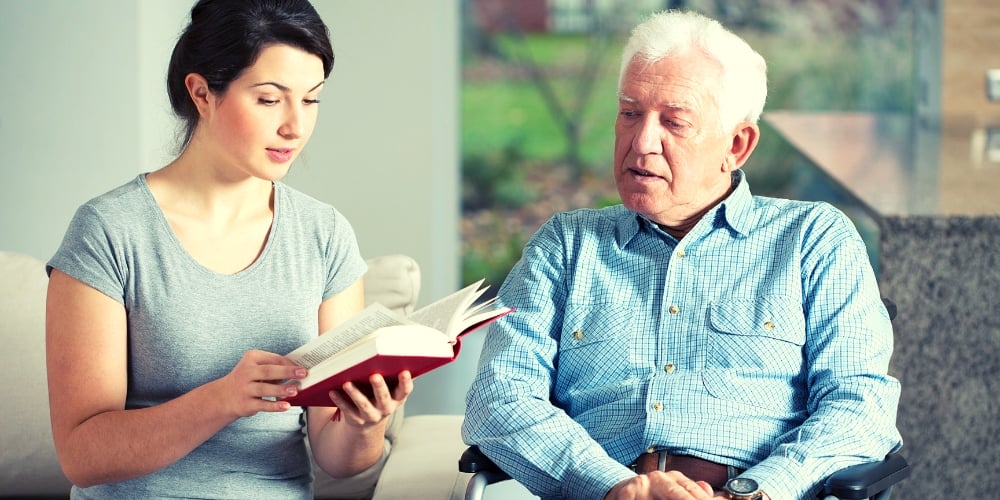
Palliative Care for Degenerative Brain Diseases
Degenerative brain disease such as Dementia of which Alzheimer’s is one, have physical effects, and can also lead to delusions, violence, challenging behaviours, accidents around the home, as well as patients walking away from their homes and becoming lost.
An effective palliative care plan will involve speaking to your medical team to find out what you can do to support the patient during this time. Care For Family is experienced in implementing these care plans to ensure the safest possible environment for your loved one in their home.
Palliative Care for Chronic Obstructive Pulmonary Disease (COPD)
COPD affects one in seven Australians over the age of 40, and while it is treatable, there is no cure. As part of their palliative care plan, patients might require oxygen via CPAP (Continuous Positive Airway Pressure) devices and other specialised equipment to help them breathe.
Physical activity can be particularly taxing and it is essential you are aware of how to support your loved one if they are in this position. Medication management and avoiding triggers that exacerbate the condition is a crucial component of a COPD patient’s palliative care.
If It Gets Too Much, Get Help
We’d all like to be there for our loved ones and be strong for them at this challenging time. The truth is, palliative care issues do arise, and they can be overwhelming without the support of experienced care professionals.
Palliative care provided by experienced care professionals can give you the assistance you require, as well as speaking to volunteer organisations about respite care, ensuring you and your family are as involved as possible.
Whatever your palliative care needs are, the expert team at Care For Family are here to offer professional and compassionate support for you and your loved ones. If you are looking for advice on in-home palliative care and on creating a palliative care pathway, please do get in touch and we’d be happy to give you a quote tailored to the unique needs of your loved one.
Palliative Care Support

In the developed world, like Australia, people are living much longer than they used to.
We currently enjoy a life expectancy of around 82.5 years, which means that there are a great many older people in our country today than there may have been a few decades ago. We live longer, on average than people in the USA, the United Kingdom, and Canada.
It also means that there’s a good chance that those elderly people might also have children who are themselves moving towards the latter end of middle age.
It's OK to Get Help
After a lifetime of hard work, having just finished raising their own children, and just when they feel that there might be a little time to enjoy the fruits of their labours, these adult children are finding that their parents need care, at the same time that they are dealing with their own health concerns.
This is where we are finding that most people need the care and assistance of care professionals, and that’s okay.
It’s okay not to be able to do a full day at the office, and then come home to care for a family member.
It’s okay to take care of the demands of your business, your teenage or university-aged children when they demand it.
It’s okay to take some time off, to enjoy what you’ve worked so hard to build, knowing that your loved ones are still being cared for.
Having made the decision for yourself or for your loved one to stay at home, there are many palliative care support options from which to choose, to make it a more comfortable experience.
With our years of experience in specialist in-home nursing care, we’ve found that when we start providing our specialist palliative care services, our clients become aware of what else is available including our affiliate expert care providers and multi-disciplinary care teams.
To help you to understand your options in advance of receiving in-home palliative care nursing, we’ve compiled a list of support resources that you might be able to access in addition to your current care, medical professionals and palliative care team.
Respite Care
If you’re a carer for someone receiving palliative care you might find that you need a break. There’s absolutely nothing wrong with this, it can be hard work, both physically and emotionally. This kind of break from caring is called respite care.

For anyone feeling like this in the Sydney area, Care For Family can help you to confidently take a break for a few hours, a day, a night or a few weeks, secure in the knowledge that your care role is being fulfilled by a fully qualified, referenced checked, highly skilled, kind and compassionate Care For Family care professional.
Outside of the Sydney area, you might also find respite carers available to help.
If caring for your loved one becomes too much for you over the long term, you are among a growing number of carers who require respite care and using our specialist palliative care team on a regular basis is an option available to you.
Palliative care should help to preserve the quality of life for the patient, and the quality of life of their carers is also important. Carers that are well supported are ultimately better carers, which means that loved ones receiving respite care get better care.
Palliative Care Counselling
Living through a period of serious, life-limiting illness, or terminal illness can be hard for families and patients, and both can benefit from the emotional support that palliative care counselling can give. Therefore, it’s a key component of any palliative or end-of-life care plan to support both the patient and their family.

At Care For Family, we understand the importance of palliative care counselling, and because of this, we have a team of highly experienced counsellors and psychologists available to help. This is something that few home care agencies offer, and if you find that you’re not receiving the emotional wellbeing support you need, you can always contact us for help.
Financial Support
If you find yourself in need of financial support because of your caring role, the Australian Government offers financial support to carers, in the form of pensions and living assistance payments. They also offer financial aid for medical equipment, tax benefits, child care support and more.

People who are caring for their loved one, and who are receiving financial assistance, as well as the people they are caring for (in some cases), may be eligible for various concessions and discounts. It is worth visiting the Carers NSW Australia website to find out about these and other programs that may be available to you and your family. Some families may be eligible for more than one of these concessions, so it’s worth exploring all the options.
Help for Patients with Dementia
Dealing with physical illness is difficult, but when patients also have aged care related conditions that affect their mental abilities, like dementia, it can be even more difficult for families and carers to cope and to manage symptoms. Our ageing population means that this is becoming more and more common, and as experts in dementia care, supporting patients and families in this way has become something we do with increasing regularity.
We’re always happy to help with your dementia care questions. Dementia Australia’s National Dementia Helpline also offers great support and has been a source of great support for Care For Family over the years.
Getting The Support You Need
The services and palliative care support options we have listed in this guide aren’t the only options available to patients and their families, and it’s always worth contacting a health professional like your local doctor as well as palliative care nursing experts like Care For Family directly to discuss your needs.
Calling a palliative care helpline can also give you the information and perspective you need to make the right and informed choices, and you can access some great advice from the Palliative Care Australia website.
We believe that no one should have to go through this process alone. Ideally, patients should have family, friends and specialist care facilities available to assist them and offer support when needed.
Palliative care can last from a few weeks to a year or more, and while it’s true that for much of that, many patients are in reasonable health, it’s inevitable that patients who are receiving this type of care will face decline at some point.
Discuss your palliative health care options early, and plan ahead whenever possible, and if you do find that it’s too much for you to handle on your own, consider a private palliative care service like Care For Family, to take over for a few days, a week, or when you can’t be around.
Remember, however big, small or unique your palliative care support needs are, our expert team are here to help. Please get in touch with our professional and compassionate palliative care team for advice and a quote for palliative care at home.
In-Home Palliative Care

Often, when we’re called by the loved ones of someone in need of in-home palliative care, it’s clear that their need for support seems to have come about suddenly, and they would like our specialist palliative care team to start immediately.
This is no problem for Care For Family, we can usually start within 12 hours of a new client calling us. Whilst we are able to provide expert care swiftly, we believe that palliative care can also work for the patient and their loved ones if it's planned in advance.
The aim of this section is to help you understand what happens when you choose in-home palliative care, and why it’s the best option.
Professional Care Makes a Difficult Time Easier for Everyone
The truth is, no one ever wants to need palliative care. Palliative care, while it might not mean end of life care, it does mean that someone you love and care deeply about has a condition that won’t get better over time, and it does mean that their condition will worsen over time.
However, not admitting that you need help, or reaching out for that help when you do need it, won’t change that fact. It won’t cure the condition or prolong your loved one’s life anymore.
In fact, while ignoring or avoiding the issue might not extend their time with you, it will ensure that the time they do have will be as comfortable, pleasant and pain-free as possible. It will allow you to relax, enjoy the time you spend with them, and be assured that they are getting the best possible care available.
Professional in-home palliative care doesn’t replace your role as the loving main carer. It doesn’t make you any less involved in your family member’s life or mean that you are taking less responsibility for their care.
It simply means that you acknowledge that while you are a great friend, child, sibling or life partner, you are not a care professional, and that while you will always be there for your loved one, you aren’t equipped to be the primary or sole provider of the mental, physical and medical care they need during this important time of their lives.
Your loved one deserves the best possible available care. You deserve to have the best possible help available to make their life as comfortable and enjoyable as possible.
Needs Will Change
The only constant in life is change, and when it comes to ageing and illness, that’s no different.
Over time, you may notice that your loved one’s condition and needs change. While they may have been able to care for themselves, in whole or in part, or perform certain day to day tasks, they might no longer be able to.
Conditions affecting cognitive function may worsen, increasing the needs and danger for your loved one and your family. Pain and mobility will change and evolve over the course of serious illness, and there will need to be adjustments made to medications, treatments, and even the methods of doing day to day tasks.
All of these things are okay. They are all to be expected, and when you are working with a palliative care team, they will all be addressed as they come up.
What Are Your Palliative Care Options in Australia?
We believe that palliative care in-home in Australia should be the first option to consider when planning your own, or your loved one’s palliative care.
Why?
Because it is by far the best option for comfort and emotional peace for the patient and their family.
To remain in familiar surroundings in their home where they have spent their lives, they will be happier, which is of utmost importance when considering the patient’s wellbeing during this time.
This must be why 70% of Australians want to spend their final days at home, therefore wanting palliative care in-home. Sadly, only about 14% do so because many people don’t realise that staying at home is generally their best option, or an option at all.
Often someone in need of palliative care ends up in a residential facility, and typically this is due to a lack of palliative care planning which includes awareness and understanding of their in-home care options.
Another benefit of in-home palliative care is that care can start immediately with palliative nursing care specialists akin to the Care For Family team. There is no upheaval such as moving to a new house, and the financial costs should be much less.

We believe that this is why palliative care at home, rather than in a residential care home is so important to the wellbeing of the person receiving care. People should be able to make that choice in the knowledge that they’re being cared for by expert and highly qualified care professionals. At Care For Family, we reference check and our care professionals have the highest level of qualifications relevant for each client. This is something you should check that your current or prospective provider does too.
We also believe that even when independence has been lost due to adverse health issues, people can still retain their independence as much as possible by having the freedom to pursue their passions, interests, hobbies and relationships.
We enable family members and friends to remain active in their loved one’s life by providing compassionate, consistent, medical, physical, psychological and spiritual support to everyone involved through excellent and consistent communication and expert care teams.
How Palliative Care at Home Works
If you, your loved one and their medical team have agreed that it is time to seek palliative care options, and you’ve decided that you want to have in-home palliative care, there are several things you should know:
It takes a team
Your in-home palliative care team work with your loved one’s doctors, specialists and the rest of their team of health professionals, to augment the existing systems and processes, and assist other professionals. For example, our palliative care team takes great care to incorporate the plans and recommendations of medical professionals into care, so that patients get the best of both worlds.
The level of care depends on the patient
We believe that each individual is unique, and the care they require should be tailored to their specific situation and care needs. Some may wait longer than others to seek care, while others may have more aggressive conditions that have more impact on their abilities making in-home care a more immediate necessity.
In-home palliative care should always consider the patient, their wants, needs and abilities, when possible, at all times.
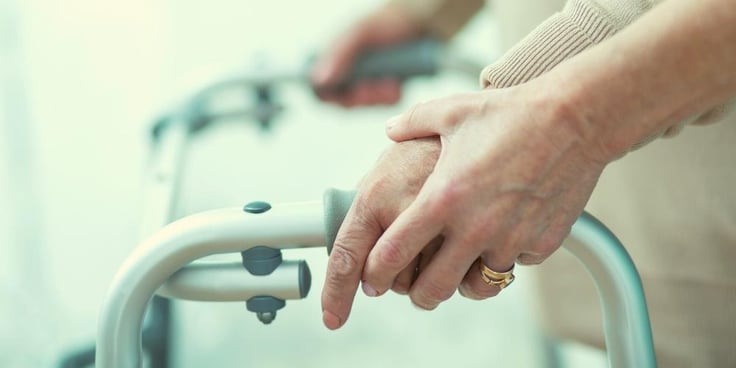
Health care evolves over time
Palliative care is not about treating an illness, but rather about providing pain management, comfort and support. Whether this is a life-limiting illness or not, your in-home health care support team should match the service they offer to the needs of the patient, at every stage.
Many types of equipment can be used at home
Sometimes, people ignore the option of palliative care at home vs hospital care, because they believe that they won’t have access to the necessary equipment, however, this isn’t a challenge for Care For Family. Through our affiliate partners, we are able to easily access medical equipment needed at home and have a past record of being able to provide medical-grade equipment for our clients swiftly.
More than medical care
First and foremost, your specialised care team should ensure that supporting medical issues are of the highest importance. For example, ensuring that medication is being taken as prescribed, assisting with personal care tasks, and helping to avoid challenges associated with limited mobility.
However, there are other facets of in-home support to be considered that also relate to aged care services.
In-home palliative care nursing is also about companionship, assistance with activities, and even domestic assistance duties such as dish-washing, house cleaning, clothes washing, shopping and paying bills. In this way, a professional in-home palliative care service helps families to adapt to their new situation while still retaining familiar routines and activities.
You might find it helpful to also read about Palliative Care Pathways.
It’s more comforting for the whole family
There’s no place like home. It’s a comforting and familiar environment for individuals in need of palliative and end of life care. Visiting the patient in their own home is often much easier for family and carers, both in practical and emotional terms when compared to visiting a residential care facility or clinical facility.
You may still have many more questions about palliative care. If you do, take a look at our answers to the top palliative care questions our clients ask.
Discussing Care Options with Your Loved One
When the time comes to make palliative care decisions, ideally in advance of the need to immediately start palliative care, it’s always a good idea to discuss the options with your loved one.
Just like you, we want them to be as comfortable and happy as possible, so getting their views on what the best palliative care for them looks like is incredibly important. It’s the foundation for getting this right for them.

Many patients (around 70%) prefer the option of in-home palliative care. It keeps them in familiar surroundings, close to people and places they love, among the memories they’ve created over the years of their life.
Palliative care in a patient’s own home provides a valuable means of creating and sustaining a more normal quality of life for them and their family and friends. And if you’re looking for help and advice about what might be your best option, it’s a good idea to consult an established and highly recommended professional palliative care provider like Care For Family.
In our own experience of supporting carers, families and their loved ones, we find that being as open and honest as possible with patients and their families about their care options works best, and since no two situations are the same, it’s usually a good idea to consult your doctor and a professional palliative care provider like Care For Family.
Palliative Care Pathways
![What is a Palliative Care Pathway_ And how does it work_ [Blog Cover]](https://info.careforfamily.com.au/hubfs/What%20is%20a%20Palliative%20Care%20Pathway_%20And%20how%20does%20it%20work_%20%5BBlog%20Cover%5D.jpg)
Whenever someone has been suffering from a long-term, life-shortening or terminal disease or condition, there comes a time when care needs to shift from providing quality of life to making the process of dying as comfortable and stress-free for the person and their family.
This is true end of life care, it happens when a patient is likely to have a week or less left of their life, and it is known as a palliative care pathway. Think of it as a roadmap to make the last days of your loved one’s life as stress-free, pain-free and as comfortable as possible.
It can be very hard to face the reality that the end of a loved one’s journey is near, but this type of care is very important, because, at the end of anyone’s life, there are some crucial things to be done, whether it’s finalising legalities or just spending time with the people who love them the most.
The palliative care pathway makes it easy for carers to provide the right kind of support and care to the patient and their family and lets the family focus on something other than day to day decision making. At a time when emotions and stress levels are high, this in itself can be a great comfort.
When you are facing the reality that a loved one is dying, it can be hard to make decisions like these. This guide should answer your questions about what a palliative care pathway is, why it is recommended for your loved one, and what will happen next.
What Does a Palliative Care Pathway Do?
A palliative care pathway is usually drawn up by the palliative care services team who is providing end of life care to a terminally ill patient. It is designed to ensure that the team provides the best possible care for the person as they live out the last days of their lives, and it helps to provide some much-needed structure and focus for the affected person and their family.

Because the medical, spiritual and physical care of the person is planned already, everyone has more time to spend on making decisions, having important conversations, and preparing for what comes next.
For example, if the palliative care was taking place in the home, where 60-70% of Australians would like their death to take place, and our very own Care For Family care team were in support, we would be able to coordinate the Palliative Care Pathway for you.
When Does the Palliative Care Pathway Begin?
If your loved one has been in the care of professionals, there will be signs that they are reaching the end of their life and that death is imminent.
The healthcare professionals who work with your loved one will know what to look for, and when they notice these changes, they will discuss the shift in care from life-supporting to end of life with the family or any other key decision-makers. At this point, the decision will be made to change the type of care being provided.
How Can Family Members Help?
The professionals on your loved one’s end of life care team will probably ask you for input on any aspect of the palliative care pathway where non-medical decisions or choices need to be made.
They will ask about what matters most to your loved one, and probably for important contact information and details. They will certainly also want you to remain involved in your loved one’s day to day activity as far as possible, and they will also welcome input and feedback about the level of care that is being provided.

At Care For Family, we believe that even when independence has been lost due to adverse health issues, people can still retain their independence as much as possible by having the freedom to pursue their passions, interests, hobbies and relationships. This is why palliative care at home, rather than in a residential care home is so important to the wellbeing of the person receiving care.
We enable family members and friends to remain active in their loved one’s life by providing compassionate, consistent, medical, physical, psychological and spiritual support to everyone involved.
When anyone’s life is ending, it can be extremely difficult to focus on the day to day requirements that provide comfort and support, and by setting up a palliative care pathway before this time comes, you won’t be burdened with difficult thoughts and decisions when your focus should be on the time you have left with the person you love.
What Will the Palliative Care Pathway Cover?
Every family is different, as is the progression of every disease, so there’s really no one size fits all solution when it comes to end of life care. However, your loved one’s pathway will probably cover the following:
1. Comfort
One of the most important parts of the pathway will be focused on comfort. At the end stage of any disease, pain management, managing confusion, dealing with fears and stress and spiritual needs all form a part of the comfort needs, and they will all be managed very carefully. At Care For Family, we always offer our patients and their loved ones our palliative care counselling services to help during this time, which is additional to the palliative care nursing support provided.
2. Medical Care
At the end of the disease process, when your loved one is ready to be on a palliative care pathway, it may no longer make sense to use medications that are designed to prolong life, or that have unpleasant side effects. It may be worth increasing the dose of pain medications that may otherwise not be advisable due to long-term effects.
In this case, the palliative care plan may include changes to medical care that alter medication regimes, and that shift the focus away from treatment, and onto immediate comfort needs.
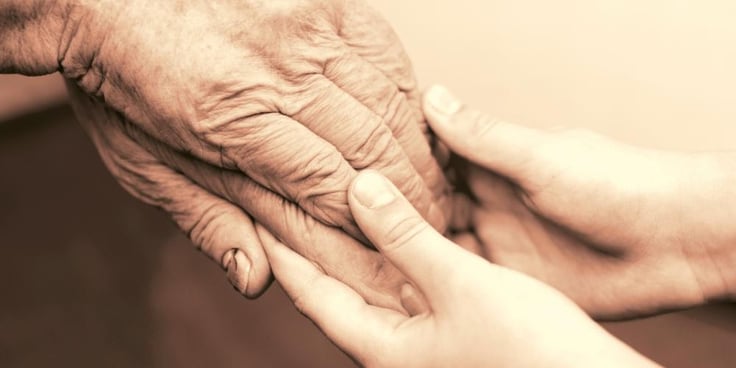
3. Nutrition and Hydration
Many people who have reached the last stage of a terminal condition are no longer as hungry as they were, or hungry at all. The palliative care plan will include details about managing nutrition and keeping your loved one hydrated, even if they don’t feel like eating. This is a normal part of the process, but it can be distressing for family members, so the team will probably discuss this with you to prepare you for it.
4. Communications
Even when a family member is dying, it’s not always possible to be with them every hour of the day. Jobs, families and other commitments still have to happen, even though there is such a major change going on.
The palliative care pathway will take this into account and set out how news and changes will be communicated, when, and to whom.
When you can’t physically be with your loved one, it’s comforting to know that their care team will keep you involved in important changes and decisions.
5. Review
It’s important to note that the palliative care pathway is subject to review. In some cases, a patient who is on a pathway will rally enough that their team no longer feels it is appropriate at the time. In these cases, the patient will be taken off the pathway, and their normal care will be resumed.
Palliative care pathways are typically reviewed every couple of days, and any changes that may be necessary are discussed and made as necessary.
6. Care After Death
If your loved one remains on the palliative care pathway until they pass, the pathway will not end immediately. Part of each pathway includes wishes for care after death, and these will be documented by the team as well.
Care for the Patient and Their Family
It’s important to note that while the primary focus of the palliative pathway is to provide comfort to a dying patient, the team involved is also there to provide comfort and reassurance to their family and loved ones.
If you have questions about what is happening, what will happen, or what you should be doing at this difficult time, the trained staff on the team will be able to answer them, and they are there to do just that if you need them to.
Everyone’s experience of illness and dying is different, and every family is different. You may find that especially after a long and painful illness, your loved one is tired and possibly even relieved that their suffering will be over. Or you may find that they need some extra support to make this final transition. Wherever your family falls on the spectrum, the team is there to support you.
If your loved one’s team has determined that it is time to put them on a palliative care pathway, and you need clarity and reassurance about what is happening to them, talk to the professionals involved. This is a very difficult time for most families, but you don’t have to go through it alone.
If you’d like to talk to us about supporting you and your family, we’re happy to provide advice and a free palliative care assessment so that you can make an informed decision about the path ahead.
Palliative Care Nursing

As one of the leading high-quality providers of private in-home palliative care services in Sydney, we receive so many kind words about our care team from our patients and their friends and family during and after our time together.
One thing we have learned from this is that the true heroes in any palliative care team are the nurses.
They’re always there to help – physically, emotionally and even spiritually.
Our nurses, as well as being interviewed, reference and police checked, are extraordinarily experienced and offer their skills with an exceptional amount of kindness, because we need them to care for our patients as they would care for family.
Because of their importance to our patients’ wellbeing, we asked Nidhi Sharma, one of our registered nurses, to answer some of the key palliative care nursing questions that clients and other nurses have about the role of nurses in palliative care.
We hope you find what Nidhi has to offer both helpful and informative.
How long have you been a registered nurse?
It’s been two and a half years that I have been a registered nurse.
What can you do after getting a BSc in nursing?
There are numerous health care areas where I can utilise my BSc in Nursing training.
After finishing my BSc in Nursing, one is able to work in any area of the hospital alongside other health professionals, including an intensive care unit (ICU), coronary care unit (CCU), paediatric, mental, medicine, surgery, occupational therapy midwifery or emergency department.
Likewise, a nurse can work in a nursing home, in aged care or in the community field. It is also possible to embark on further study, including a master’s degree which would allow one to become specialised within a chosen area.
Why is palliative nursing care important?
Palliative nursing care is very important in providing physical as well as emotional support to a terminally ill patient as well as the family members and loved ones.
It is necessary that patients receive adequate support and interventions to prevent and reduce pain as well as other symptoms and improve their quality of life.
However, palliative care is not limited to when the patient is living with a life-limiting illness, but also as part of end-of-life care, to help in alleviating the symptoms.
After a loved one has passed, it is important to provide emotional support to their family and carers at the time of grief.
What does it take emotionally to be a nurse in a palliative care setting?
It can be very emotionally challenging for a nurse to be in a palliative care setting.
Palliative care patients are physically, mentally and socially very affected by the change in their circumstances. And the effects of these changes are also often felt by the patients’ family and carers.
When staying with and working closely with a palliative patient, cancer patients, for example, we always face and see their fear of dying, their everyday pain, and the complications that they must tackle.
We also find that many families develop a fear of grieving and loss. There are times when they ask if the patient is not going to live much longer, and we cannot answer as we don’t always know the answers but also experience a facet of grief.
Maintaining our professionalism and leaning on our extensive training, at this time, helps us to process what can be very difficult emotions, and enables us to face the family members and be able to support them as best we are able.

What are the benefits of palliative care?
Palliative care is patient-centred and prioritises the patient’s choice and needs.
The care is not only limited to the patient, as palliative care also extends to the family members who are affected by this change in circumstance, all with the aim to improve the quality of life of the patient.
Palliative care provides intervention aimed to reduce pain and other symptoms as well as improve physical, mental and social well-being of any illness, including those which are life-limiting.

What does it feel like to be in a palliative care facility vs a patient’s home?
Home-based palliative care is a more comfortable and effective working environment than being in a palliative care facility (e.g. hospice care).
The reason behind this is the safety and comfort that a patient feels in their own familiar surroundings rather than in a foreign environment.
Many patients verbalise that they prefer to spend their final days in their own home than in a hospital or in an aged care facility.
Patients who are at home have a feeling of being in a secure environment and quite often experience fewer symptoms of pain and complications than patients staying in a hospital.
What are the advantages of using in-home care professionals?
In-home care professionals can assist patients in receiving day-to-day care like grooming, bathing, feeding, and assistance with performing activities of daily living. Likewise, they can help in performing household activities and encourage them to maintain a healthy nutritional diet.
An important advantage of in-home care provided by care professionals is the companionship they provide for their patient and in their ability to enhance social interactions.
What is the scope of palliative medicine after anaesthesia?
Even though anaesthesia is used to reduce the pain during surgery, pain can persist for quite some time after surgery. As such, it is necessary to provide palliative medicine to reduce the pain and associated symptoms.
The symptoms after surgery require different approaches including pharmacological as well as non-pharmacological; these include relaxation, music, companionship, exercise and psychosocial therapy.
Do you have any questions about palliative care?
If you’d like to talk to us about supporting you and your family, we’re happy to answer any questions you may have about palliative care, provide advice and a free palliative care assessment so that you can make an informed decision about the road ahead.
Palliative Care Counselling
Whether you’re a patient or a loved one of someone receiving palliative care, it can be quite an overwhelming period. If you or any of your loved ones find yourself feeling like this, then a palliative care counselling service could be what you need.
As the leading private in-home palliative care services agency in Sydney, we support our patients and their families holistically. This means that we don’t just care for their physical health, we care for their mental health too. And we believe that this is critical to the wellbeing of anyone receiving palliative care.
This is because palliative care should focus on comfort, whether that be in terms of limiting pain, providing simple joys, ensuring respect and dignity, and addressing spiritual and mental health concerns for both the patient and their family.
It is the latter point that we’d like to help you understand more fully so that you are aware of what help is available with regards to mental health support for the whole family involved in a palliative care setting.
As part of all our personalised specialist palliative care plans, we have a palliative care counsellor available to talk to both patients and their family members (and friends too).
Because of this, we thought that one of our most experienced team members, Susie Danos (Psychologist & Counsellor), would be best able to provide the insights you need to make informed decisions on this topic, and so we put some of the most commonly asked palliative care counselling questions to her.
We hope that you find the Q&A helpful, and if you have any further questions, please get in touch and we’ll be happy to answer them if we can.
What Is Palliative Care Counselling?
Palliative Care Counselling is a professional therapy service that addresses the many different issues and feelings that arise when patients are informed that it’s time for Palliative Care. Appropriate types of counselling are available, depending on the specific needs of the person seeking counselling.

What Every Family Should Know
It is often difficult for families and their loved one(s) to hear that they need Palliative care.
The patient and their family may come to accept that palliative care is necessary, at different times. Therefore it is important that the counselling process is adjusted and tailored to each individuals’ needs at that time as part of their palliative care pathway.
If counselling is accepted by either the patient or members of their family this could avoid some serious, painful and emotional palliative care issues that may need to be confronted.
Support and counselling is an option that can ease the pain and make communication between all parties easier.
When Should I Seek Counselling?
There’s no right or wrong time to seek counselling. Some people choose to seek it as soon as they learn that they or their loved one has a terminal illness that requires palliative care. Some have already been in counselling to deal with their illness, and they simply seek additional counselling to offer further support. While it is also common for others to seek counselling during the very late or end stages of a disease. What is important to remember is that if you or anyone else involved feels overwhelmed or unable to cope, you do not have to cope alone.
Is Palliative Care Counselling Confidential?
Like every other type of professional counselling, counselling for palliative care support is completely confidential and private.
Who Is Present During Palliative Care Counselling?
Counselling is usually a one to one service, although if requested and agreed to, other family members can be included.
What Can Palliative Care Counselling Do for Patients?
Palliative care Counselling for patients is designed to help people who are in palliative care to deal with the emotions related to losing their independence, the prospect of dying, quality of life, and any other issues that may arise during the time they are in care.
The counselling needs of patients can change as their condition changes. Coming to terms with mortality is never easy, nor is coping with pain or losing your independence or watching the loss of independence of your loved one.

What Can Palliative Care Counselling Do for Families?
Caring for a loved one when they are very ill is a very important and noble choice, but it can also take a heavy toll on families, spouses and friends.
Anyone who is directly involved in the care of a very ill person will be under enormous mental, physical and emotional pressure, and even people who are simply living in the same home may be deeply affected.
Some of the most difficult emotions loved ones face are about being powerless to help. Palliative care support services and counselling can help family members, carers and loved ones to work through their feelings during this difficult time, so that they can continue to do the best for their loved one without burning out or sacrificing their own personal lives.
What About Grief Counselling?
Many people believe that grief counselling starts when someone dies, however, while that may be true when death is sudden, the grieving process is actually much longer and more complex when there is a long-term illness involved.
Palliative care counselling is definitely also grief counselling, but it addresses grief throughout all the stages of the process, not only after the patient has died.

What Types of Emotions Are Normal?
There’s no “normal” or “abnormal” when it comes to grief. People can feel relief, disbelief, sadness and/or anger. They might try to blame the illness or death on a person or an action, and they may either withdraw from their regular lives or engage in risky behaviour. They may feel guilty, and even when they feel happy, they may feel guilty for not being sad!
No one really knows how they will react in a situation like this until it happens to them, but a professional counsellor can help to put all of these feelings into perspective and help patients and their families to move past them.
How Long Does the Process Take?
In our busy modern lives, we often want to know how much time something is going to take to complete. In this case, there is no easy answer.
For the family, coming to terms with a new ‘normal’ once the patient has passed away, is what the grief process is about. Depending on the situation, it can take from 3 months to 13 months
Counselling in a very empathic environment can often facilitate the healing process
How Can I Access Palliative Care Support and Counselling?
If you are using an in-home palliative care service team, then you may be able to access counselling through that team. Care For Family are experts at offering this service.
Alternatively, if your loved one is in a hospice or medical facility, they may have counsellors on staff to assist.
Hospitals often offer counselling, or you can ask your family doctor or a traditional therapist, or you could contact an organisation like Palliative Care Australia for more options.
Help Is Available
It can be very difficult to think clearly during the palliative care process, and that’s completely normal. No one expects you to be strong all the time, or to be able to cope with everything on your own.
Whether you are using a private, professional in-home palliative care service or any other option, reach out to the people you deal with. If they can’t help you themselves, they can almost certainly connect you with people who can.
When you are going through this difficult time, it can feel as though you will never work through it but with support, you can.
If you would like to talk about your palliative counselling needs, please don’t hesitate to get in touch with the Care For Family team. They are so supportive and caring, and they will be able to help you through this period in your lives.
Palliative Care Questions
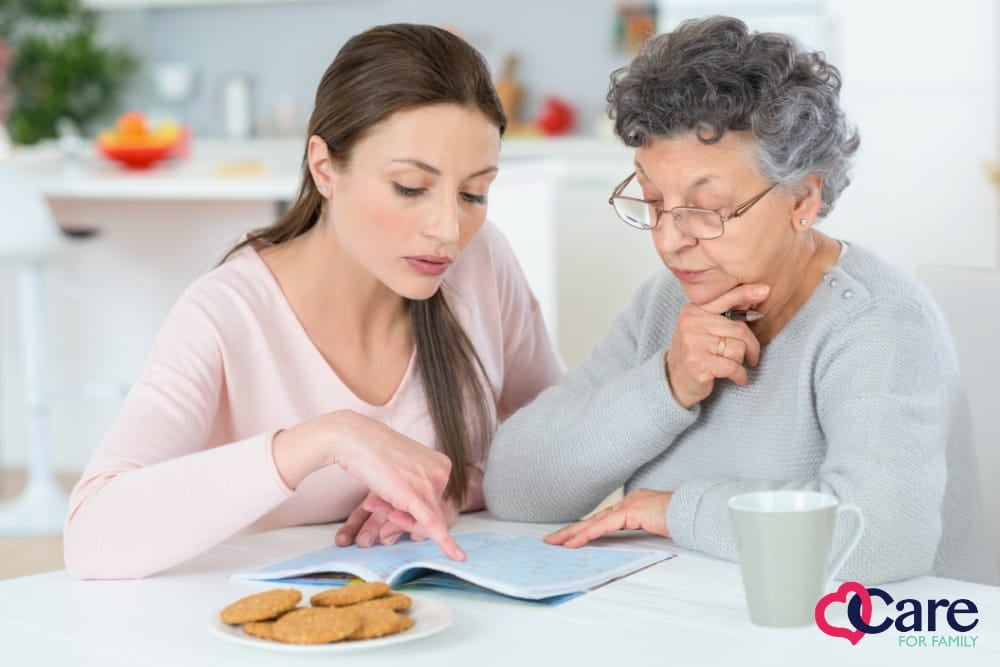
Throughout the years we have been providing nursing care in Sydney, we've been asked many questions by the people we care for, by their family, and by their close friends. We’ve noticed that lots of those questions relate to palliative care, possibly because it can be a misunderstood form of care.
In this section, we’ve covered the most common palliative care questions that we’ve been asked and those questions we believe need to be asked of care providers. This will help with your understanding of palliative care and potential care providers, so that you can select the one most suited for your needs.
We hope that these questions and our answers below are helpful and if you’d like to find out further information, we’re happy to help.
What is palliative care?
Palliative care is specialised medical care for people living with a serious illness. This type of care is focused on relief from the emotional stress, pain and other symptoms that come from a serious illness.
The goal is to improve the quality of life for both the patient and their family. Palliative care is provided by a specially trained team of care professionals, doctors and nurses who work together with the patient’s own doctors to provide an extra layer of support.
This type of care is appropriate at any age and at any stage of a serious illness and it can be provided along with curative treatment.
Is Palliative Care End of Life Care?
While many people equate palliative care directly with end of life care, that’s not strictly true these days.
In fact, while some people do choose only to use palliative care services when they are in advanced stages of serious disease, there is growing research that choosing palliative care earlier in the progression of life-limiting diseases can extend the life of the patient and provide significant improvement in quality of life for the duration of that life.
Unlike traditional treatment, where the focus is on treating or curing an illness or condition, palliative care accepts that the condition exists, and focuses on comfort, whether that be in terms of limiting pain, providing simple joys, ensuring respect and dignity, and addressing spiritual and mental health concerns for both the patient and their family.
Choosing palliative care for a family member does not mean that their death is imminent.
Identifying and addressing your loved ones’ physical, psychological, social, and spiritual needs and should not be confined to the terminal phase and neither should advance care planning. If your loved one’s illness is potentially controllable or even curable they can also benefit from a supportive and palliative care approach. This would aim to assist their quality of life.
With the support of medical advice in recognising the progression of the illness, this could allow you to engage with your loved one in an honest discussion of setting some care goals accompanied by wise treatment choices in a way that promotes realistic hope and prepares for future possibilities and not necessarily end of life.
It means that for whatever time they have left with you, you want them to be as comfortable and happy as possible, and you want to preserve and prolong the relationship you have with them.
So, while palliative care might be end of life care for some people, in many cases, it’s caring to prolong and enhance the last months or even years of life for people who have incurable conditions.
Who Is Palliative Care Intended for?
Modern palliative care is for any person who is in the advancing stages of a serious, life-limiting disease, who finds that their symptoms, pain, and day to day life has been impacted to the extent that they can no longer cope on their own.

In the earlier stages, this care might be more hands-off and may be limited to finding better ways to manage pain and improve quality of life. In later stages, it may be more hands on.
There is usually a team involved in providing palliative care too, and that team may include many different people, from your primary care physician to spiritual advisers, family members, nurses and other professional care workers and nurses. It really does take a village to ensure that your loved one is as comfortable as possible, so it’s no wonder it’s hard to do it alone!
If you currently don't have a professional palliative care team supporting you or your loved one, or if you are thinking about changing, we're happy to provide impartial expert advice if you'd like to get in touch.

Why Do Family Members Struggle to Care for Relatives?
It can be the hardest thing in the world, admitting that you aren’t coping with the care of a family member. You may feel guilt, or that you’ve failed your loved one in some way. You may feel that you owe them the care in their twilight years that they gave you as a child if they are a parent. Those feelings are completely normal.
The truth is, most people simply do not know the best way to care for a loved one who may have impaired mobility, pain, limited or intermittent cognitive abilities, and other issues. Even when you do your best for them, not knowing how to provide the best care can be heartbreaking.
You may feel guilty, or you may feel helpless. Many people struggle to admit that they feel some resentment towards their loved ones, but this is also completely normal.

Caring for a parent or loved one takes a mental and physical toll, and it can be hard to see someone who has always been a pillar of strength in your life become weaker and need help with day to day life.
At the same time, it can be hard for those people, who are used to being in control, to accept that they may need to relinquish control to a younger family member or friend, and no matter how close and loving the relationship is, that can lead to friction.
Even though your loved one may need to listen to your requests to slow down, to stop trying to do certain activities on their own, or to take their medication, they might not be willing to do so, and that can leave you feeling like you have no options, and no control of the situation.
As much as you might feel you owe your loved one personal care, it may be the best thing for both of you to seek the help of caring, trained professionals, so you can avoid these difficult and conflicting feelings, and simply enjoy each other’s company for as long as possible.
Does Palliative Care Mean Going into an Institution?
Many people are worried that palliative care will mean they, or their loved one, will have to go into an institution, a hospital or hospice care, but that’s not true.
So, if you’re avoiding looking into palliative care because you can’t face the possibility of admitting your loved one to a hospice, don’t!
In many cases, in-home palliative care is the best option for everyone involved, balancing the need for professional care and attention with the desire to maintain family bonds and normal life for as long as possible.
Your family member or loved one may never need to spend time in an institution or hospital. Even when their condition is very advanced, they can remain in their own home no matter how far they have declined with the support of an expert palliative care services team.
What are the signs that palliative care might be recommended?
There comes a time when it is clear that treatments are not working as they should and pursuing a cure is no longer feasible. People who need palliative care may experience some of the following symptoms, depending on their illness. These symptoms can impact on their quality of life and be distressing for their family and those caring for them.
It's important to be familiar with these symptoms and work with the patient’s team to determine what can be addressed. Palliative care patients may experience more than one symptom at any given time including, but not limited to:
- Pain
- Delirium
- Nutrition and hydration
- Breathlessness
Does palliative care always mean a decline in health?
Palliative care is for any patient with a chronic illness who is experiencing a decreased quality of life. In some instances this can be attributed to symptoms relating to treatments being received for an illness; such treatments can include renal dialysis, oxygen therapy or chemotherapy.
Palliative care is the umbrella where we focus on symptom control to get you through treatments.
Does Palliative Care mean you are dying?
No. Palliative care does not mean death. It’s about symptom management and improving quality of life.
However, this care does serve many people with life-threatening or terminal illnesses. Palliative care also supports patients to stay on track with their health care goals. Palliative care improves the quality of life at any stage of serious illnesses.
Care For Family will take the time to talk to you and your loved ones about what is wanted and needed to provide the most appropriate care. We do this because we believe passionately that anyone needing high quality, safe and protective care, should have access to it.

We offer personalised, professional, and compassionate in-home care that provides peace of mind for family carers, companionship, and supported independence for the person they care for. Our philosophy is integrated into the overall care of our clients and the care their family receives.
It’s about focusing on you and your family and the most effective way for you to navigate your palliative care journey together.
Is palliative care only for old people?
Palliative care provides physical, spiritual, social and emotional support for newborns, infants, teenagers, and young adults with a life-limiting illness and their families.
There may be a whole range of emotions to deal with after a diagnosis of a life-limiting illness. There is a range of specialist palliative care services for children, teenagers and young adults. Peer support is very important for teenagers and young adults.
This type of palliative care can also be provided at home. Read about what happens when you have in-home palliative care.
Does palliative care mean your doctor is no longer involved?
It is important to know that the specially trained palliative care team works closely together with your primary doctor. They focus on the stress, other symptoms and side effects from the disease and its treatment.
Your own doctor will focus on your general health or treating your disease or condition, whilst the Palliative doctor would concentrate on preventing and alleviating suffering, improving your quality of life and helping you and your loved one cope with the stress of your illness.
Palliative doctors can assist you with difficult medical decisions as part of a Palliative Care Pathway.
Do I still get a say in my loved one’s care?
Having an early discussion with your loved one about what they want can help implement as many of their desires as are feasible.
It is important to ensure your loved one’s essential documents are completed. Some of these documents would include a living will, powers of attorney and guardianship for health and financial needs. Having these documents completed will help you do your best at carrying out your loved one’s wishes and caring for them.
When death is approaching you can say and do a lot to control the environment and make it as comforting and positive as possible.
Read more about other Palliative Care Issues here.
Do I have to send my family member away for palliative care?
If they have symptoms that are difficult to manage, such as seizures or pain, your loved one may find it more comfortable in a hospital with fast access to equipment and drugs. Planning well in advance would be necessary to keep your dying loved one at home.
If you choose in-home care, the palliative care team and experienced nurses and your doctor will visit, and a team of nurses and carers can be present 24 hours a day if required.
How does Care For Family provide specialised Palliative Care at Home?
Our respectful and experienced care professionals are ready to support you when you need it.
Care For Family can offer the same level of care that you would receive in a hospital or a hospice, but if you or your loved one wishes to remain at home, in familiar comfortable surroundings our support teams are ready.
There are challenges supporting a loved one who requires Palliative in-home care and we at Care For Family understand all that is required to support you and your loved ones through this challenging time.
Having the privacy and comfort of your own home and being surrounded by family and friends and all the memories you have created over the years can give you and the patient much comfort in their final moments.

What about the equipment my family member needs?
This will depend on the condition or illness your family member has but some of the most common equipment would be: an oxygen tank, a walker, a wheelchair, a shower chair, a commode, incontinent wear, and an adjustable bed to lift and transfer and/or a hoist.
What is a palliative care team?
Palliative care is typically provided by a team of healthcare professionals with a range of skills. This care team work together to meet a patient’s physical, psychological, social, spiritual and cultural needs. They are usually also available to help family members and their carers.
The members of a palliative care team can include:
- Doctors
- Nurses
- Allied health professionals
- Volunteers
- Care Professionals
- Carers
- Social Workers
- Psychologist specialising in grief counselling and palliative care counselling
Who are the members of the Care For Family Palliative Care Team?
Our specialised team of trained nurses and care professionals will work together with multidisciplinary teams, your doctors and our clinical team to provide the highest level of quality care.
Care For Family only uses care professionals who have been reference and police checked, hold accreditations, as well as expertise and years of experience working within aged care and always meet any specific care requirements.
Our team psychologist is always on hand to offer counselling to help ease the emotional pain and make communication between all parties easier. The process of this support can be adjusted to suit each individual’s needs at any time.
How can we contact THE CARE FOR FAMILY Palliative Care Team?
A phone call to us at Care For Family to discuss your details and your current situation to establish who is the most qualified person to organise an in-home care needs assessment.
With absolute confidentiality, we will meet you and your loved one at a suitable time to listen to what you feel your needs are to develop an individually tailored care plan.
We will discuss how our qualified care professionals and nurses can deliver the services you require to enable your loved one to remain comfortable and peaceful in their own home.
At Care For Family, we take the time to listen to and to understand your requests and provide the highest level of quality palliative care.
What makes Care For Family different from other home care providers?
We offer a no-charge assessment in your own home at your convenience.
We listen to our clients, as it is their journey and we respect their wishes as well as offering the highest quality support.
Our care teams are consistent and personalised to meet the individual unique care needs of each of our clients.
We have nurses and care professionals who have specialised training in many forms of dementia which would allow our clients to remain at home and enjoy all that is familiar to them.
Our clients can choose who they feel is the best-suited palliative care nurse and care professional to care for them.
We are available around the clock.
We care and we do it well.

Getting answers for palliative care questions
It’s completely normal to have lots of questions relating to palliative care and how to integrate this into your loved one’s current care plan. The best thing you can do is to talk to the people who are providing this type of care and to ask questions specific to your situation.
If you’d like to talk to us about supporting you and your family, we’re happy to answer any questions you may have about palliative care, provide advice and a free palliative care assessment so that you can make an informed decision about the road ahead.
Summary
We hope that you have found this guide to be helpful and that we have covered almost everything that you would like to know about palliative care in Australia.
If there is anything that you believe that we may have missed, please let us know so that we can look into adding it to make this guide even better.
Remember, palliative care does not mean the same thing as end-of-life care, it's about helping people live their life as fully and as comfortable as possible when living with a life-limiting or terminal illness. To be done well, it takes a team ideally made up of family, friends and health care professionals.
There is no reason to feel guilty if you are a carer and feel that you need help. Being a carer is tough, both emotionally and physically.
You are not alone. Help is at hand.















![What is a Palliative Care Pathway_ And how does it work_ [Blog Cover]](https://info.careforfamily.com.au/hubfs/What%20is%20a%20Palliative%20Care%20Pathway_%20And%20how%20does%20it%20work_%20%5BBlog%20Cover%5D.jpg)















